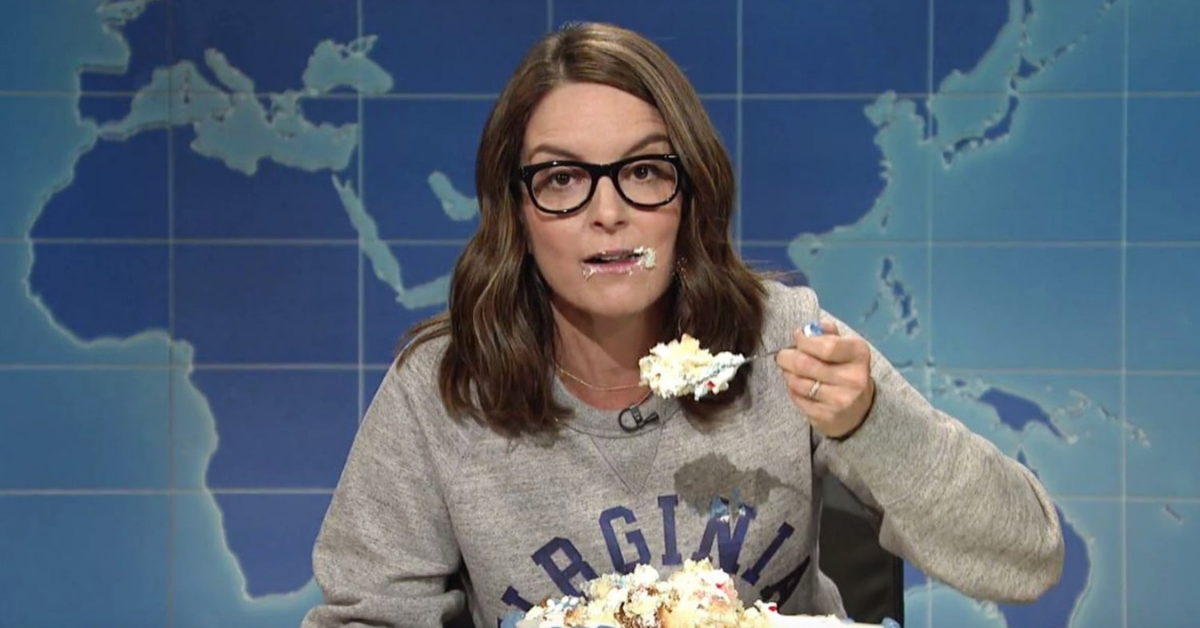Tina Fey has a broad and loyal fan base and a Hollywood resume that many are envious of. She found success on Saturday Night Live, wrote a movie that became a classic to millions, and created multiple hit television shows. Recently, however, events in the news have brought to light how some have not always been happy with the comedian's portrayal of certain ethnicities in her work.
While many focus on her dependency on gay and black stereotypes, the recent uptick of hate crimes against Asian people has caused activists and advocates to put Fey’s portrayal of Asain characters under hard scrutiny. Her projects have been put under a microscope, and the results have been unsettling to some of her fans.
Many activists and social media creators feel that Fey has routinely depended on the mockery of BIPOC in her work, especially Asians, for too long. Not only have her recent projects, like The Unbreakable Kimmy Schmidt, fallen under scrutiny but many question whether or not Fey stepped over the line in her earlier works like on Saturday Night Live, 30 Rock, or her magnum opus the film Mean Girls.
Let’s review Tina Fey's work and see why some are not happy with the way she writes Asian characters.
7 '30 Rock'
The news went viral in 2020 when, amidst the George Floyd Rebellion, Tina Fey requested that NBCUniversal and all streaming apps remove episodes of her hit sitcom 30 Rock from circulation because of scenes that involved the use of blackface. While some fans were happy about the removal of the four episodes, others pointed out a grotesque inconsistency in Fey’s standards. This was because Fey had done nothing to reconcile with any other race, especially Asians, who have often been the but of Fey’s jokes. Several activists took to Twitter to point out her inconsistency.
6 'Mean Girls'
The most glaring inconsistency in Fey’s actions is her portrayal of Asian women in her most popular film. In Mean Girls, Asian women are portrayed as these hypersexual beings who exist for the pleasure of white men. This is known as "the dragon lady" stereotype, where a female Asian character will be portrayed as a prostitute, or something similar to a prostitute, who often can only speak in broken English and exists only for the pleasure of white men. You might recognize this stereotype from movies when the character says things like “Me So Horny!” or “Me love you long time!”
5 Her 'All Asian Names Sound Alike' Problem
If someone were to say “all Asians look alike” that person, appropriately, gets labeled as a racist. The same can arguably be said if someone were to say something like, “all Asian names sound the same,” because both statements ignore the cultural differences and nuances that make Asia so incredibly ethnically diverse. When writing and workshopping Asian characters, Fey has made the mistake of combining names from different ethnicities. In Mean Girls, some of the Asian characters had names that mixed and combined Japanese and Vietnamese first names and surnames, and she made this same mistake in The Unbreakable Kimmy Schmidt when characters had names that mixed up Korean and Chinese. That is just one problem Fey ran into with her Asian characters in that show. The list of grievances that Asian activists have against Fey for that show is somewhat staggering.
4 The Use Of Yellow Face On 'Unbreakable Kimmy Schmidt'
In one episode of Kimmy Schmidt, Titus (a black and stereotypically gay character) puts on a play where he dresses up in yellow face as a Geisha. The play is picketed by Asian activists and protesters who demand the play be canceled. Titus eventually realizes what he is doing only after constant online trolling, causing the episode to be more of a lampoon of online cancel culture than a stance against Asian hate.
3 Dong
Along with the tedious play episode, Kimmy Schmidt faced backlash because one of the show's central characters, Dong (yes, she really wrote an Asian character named Dong). Dong is supposed to be a Vietnamese immigrant, who works in a Chinese food restaurant, and is played by a Korean American actor Ki Hong Lee. There is a lot to unpack in that one sentence, however, it’s important to note that it was a big deal when Kimmy and Dong started a relationship with each other. Interracial couples are still too rare in Hollywood, especially ones involving an Asian male with a white female.
2 The Portrayal Of Asians Isn’t The Only Racist Thing In 'Kimmy Schmidt'
While people point to Dong and the yellow face episode, Fey also found herself being scrutinized for the show's stereotypical portrayal of Native Americans. The show's co-star Jane Krakowski plays Jaqueline, a character who learns to embrace her Native heritage, the problem though is that Krakowski is both blond and white.
1 No Apologies From Fey Yet
Since the controversy, Fey has issued no public apology, said nothing about her inconsistency between her issue with blackface but her acceptance of using Asians as punchlines, and she shows no intention of pulling episodes of Kimmy Schmidt as she did with 30 Rock. Asians and anti-racist activists find her silence speaks louder than any words could. The longer Fey ignores these calls for accountability the more bridges she burns with nonwhite audiences.

